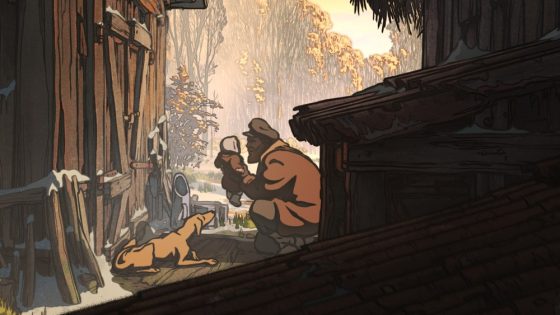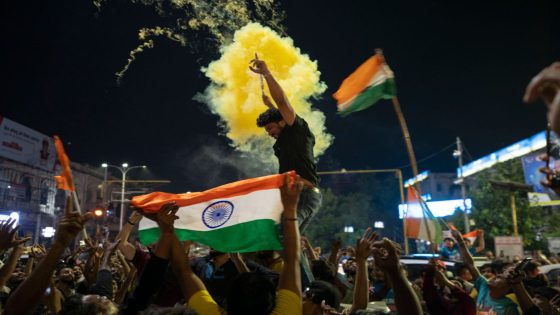Michel Hazanavicius, the Oscar-winning director of “The Artist” whose animated film “The Most Precious of Cargoes” competed at this year’s Cannes and was subject to some backlash due to its depiction of Auschwitz victims, has penned an op-ed denouncing rising antisemitism in France.
Hazanavicius, who is the Jewish son of Holocaust survivors from Eastern Europe, rhetorically asked in French newspaper Le Monde, “Why do I have the impression that more and more people have an issue with the simple fact of addressing the genocide against Jews?”
“Why do I have the impression that as a member of a minority like any other, which has had its share of tragedies, I’ve become a member of the dominant caste, the figurehead of oppression, imperialism and injustice? As if being Jewish had become something really murky, vaguely suspect, possibly detestable. How could I have become so evil in such a short time?” asked Hazanavicius.
The Oscar-winning filmmaker, who shed light on the 1999 war in Chechnya in his film “The Search,” said he also felt that “more and more people were less and less concerned about antisemitism” amid the current war in Gaza.
“And why, when Netanyahu is put on trial, do I hear too often the trial of Israel, or even the trial of the Jews, instead of simply putting the far right on trial, however Israeli it may be?” Hazanavicius continued, adding that he also has the feeling that “Jews are the coolest enemies to hate (…) much cooler than the Russians or the Chinese, for example.”
The helmer also suggested he shouldn’t be required to give his opinion about the war in Gaza and Israel-Palestine conflict every time he gives an interview, just because he’s he’s Jewish.
He also suggested that in a “normal world,” we would have anticipated “a wave of empathy rather than violence” against Jews in the wake of the Hamas attack of Oct. 7. “Why weren’t these moments of stupor and sorrow shared by all? Do we have to hear ‘Yes, but –‘ every time one or 1200 Jews are massacred?”
In an interview with Variety on the eve of the Cannes Film Festival this year, Hazananvicius said his grandparents escaped being deported to Auschwitz, but not members of their family and friends. He said he wanted his movie to be anything but preachy, as he aimed at celebrating those who overcame prejudice and saved lives. But he was slammed by some critics for the only scene that depicted the horror of the death camps.
Scored by Oscar-winning composer Alexandre Desplat, the drama intertwines the fate of a Jewish family and their newborn twins, deported to Auschwitz, with that of a poor and childless woodcutter couple living deep in a Polish forest. On the train to the death camp, the young father wraps one of his twins in a shawl and throws her off the train into the snow. The lonely woodcutter woman, watching the trains go by in the hope that they’ll leave some resources behind, stumbles across the “cargo’ and discovers the little girl. She decides to take her home. Her husband, who calls Jews “the heartless,” is initially reluctant to the prospect but warms up to the little girl and eventually sacrifices everything to save her.
Hazanavicius said he was hesistant at first to tackle the project because it dealt with the Holocaust which “seemed so daunting to (him),” but was ultimately drawn to the story which he said is “immensely beautiful” and timeless.
“The Most Precious of Cargoes” will be distributed in France on Nov. 20 by Studiocanal. It’s produced by Patrick Sobelman and Robert Guédiguian at France’s Ex Nihilo, as well as Florence Gastaud and Hazanavicius at Les Compagnons de Cinéma. Jean-Pierre and Luc Dardenne co-produced it via their banner Les Films du Fleuve. The voice cast is led by iconic French actor Jean-Louis Trintignant, alongside Gregory Gadebois and Dominique Blanc.
Source Agencies




